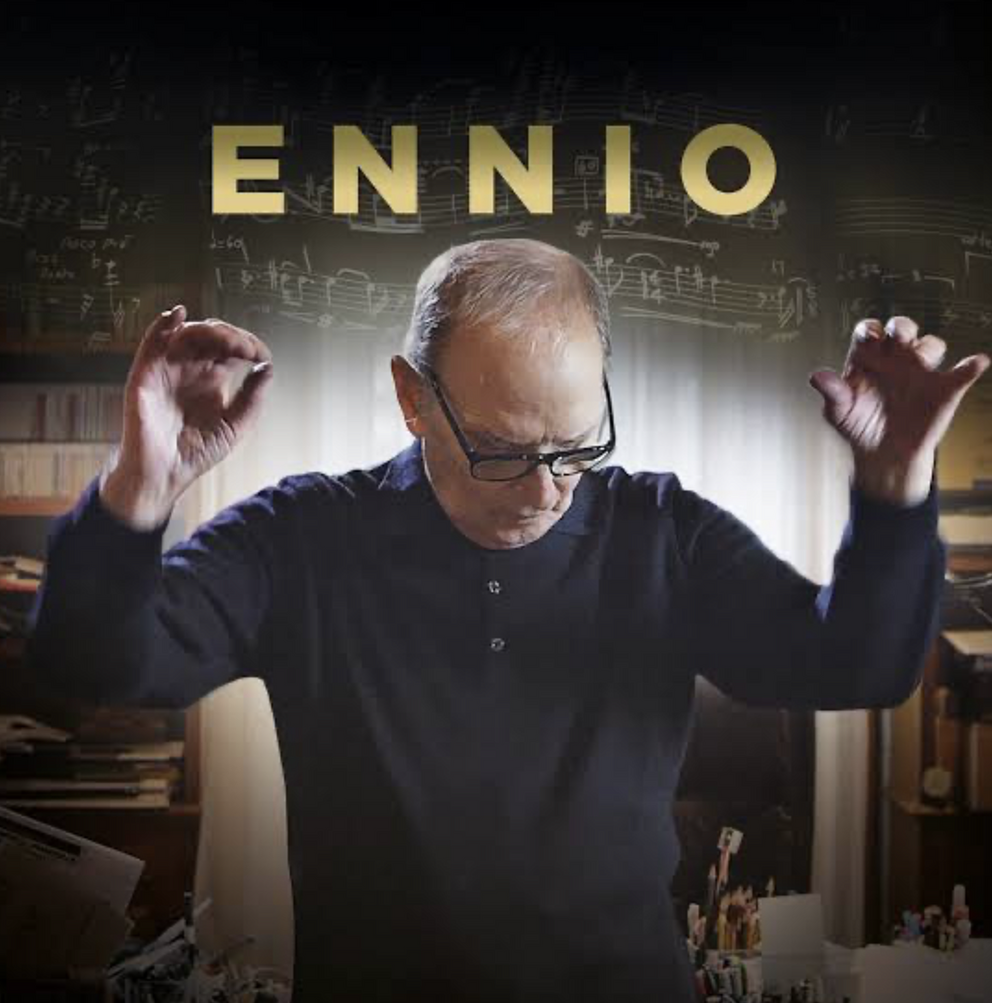NYC
More Than Enough Ennio
by | Feb 16, 2024 12:34 pm
Post a Comment | E-mail the Author

Ennio
Film Forum
West Village, NYC
2/15/2024
You know who Ennio Morricone is. Trust me. You do. Even if the name only rings on account of it’s own sonic beauty, you — like any person inured in televisual and ‘pop’ culture — know what his music sounds like. I’d list the films he’s scored, but it’s too many — so, I’ll link to the wiki page and we can all just scroll in awe that one man, more or less, was responsible the aural underpinnings of such a glut of our favorites.
There is something to awe at here, I’m not being sarcastic. On the surface it’s an impressive number of films, a little deeper it’s an impressive number of culturally relevant and fine films — there’s more than several handfuls of pictures within his oeuvre that would come up in almost any conversation with even the most obscurantist film-buff: Leone, Pasolini, Maleck, Argento, fucking Tarantino, etc.
And the music is killer stuff. Before Morricone, nobody did it like Morricone. After Morricone, everybody tries not to do it like Morricone.
It’s a story we’ve all heard about every beloved artist ever for all time all the time over and over again upon over again and again. Attempts at this same sort of needlessly hagiographic documentary have been made about almost any artistic figure one can imagine, always with the same take away: “Wow! Artist X, Y, or Z sure did make a bunch of great stuff. Not very interesting a person, though. I should go look/watch/read/listen to more of their stuff from now on!”
There. I’ve saved you the seventeen dollars and nearly three hours in the cinema. Go, right now, listen to some Ennio Morricone. Go watch a Sergio Leone film. Go listen to some ‘60s Italian pop. Check out that Joan Baez album. He wrote a Mass for Pope Francis, that’s cool. Hateful Eight is a decent flick. Pasolini’s Trilogy of Life is better. This is your cheap reminder that Ennio Morricone exists, is a genius, is worth listening to — tons of real music-nerd lessons in his scores, it’s wild; as an arranger, he might be the keenest since Ravel— and is also not a very interesting person.
But he doesn’t have to be! He’s a composer, and his music is incredible. The. End. That’s all there needs to be.
The makers of this documentary, though, disagree. They needed there to be some deep human struggle at the core at Ennio’s career.
So they amassed the most hackneyed cast of celebrities and personalities to weigh in as they trudged through a nearly exhaustive catalogue of Ennio’s film work. They all said the same shit: “He’s a genius, an uncategorizable genius.”
The score of every film followed one of two repeating arcs: A director approaches Ennio, Ennio says, “No,” the director says “Please, just read the script,” some time passes, and Ennio says “Yes.” Money in the bank.
OR: A director approaches Ennio, Ennio says “Yes,” he writes the score, the director hates it, Ennio says “Trust me or I quit,” the director trusts Ennio. Money in the bank.
If you’ve read this far, and haven’t done you due listening diligence, I will now tell you what actually upsets me: There was a story here. There were several to choose from. Of course that would mean making a choice, not a narrated list, but still. Three documentaries they could have made instead:
- A film about Morricone’s art music bona fides, contextualizing his unique body of work against the landscape of the ‘more serious’ classical music of the 20th century, a world he desperately wanted to be a part of that his film work kept him from being lauded within.
- A film solely about his relationship with Sergio Leone, a fruitful and fraught friendship that redefined the role of film-score composer in relation to the myth of the auteur.
- A true craft film that places him within the canon of western music, where he belongs. There’s more than enough parallels between his carry and, say, J.S. Bach’s — down the secret sauce of their music being the diligent practice of counterpoint and a real workman’s attitude toward composition.
It is in no small way a tragedy that we got the film we did instead of any of the other possibilities. There’s no shortage of other flaws in this documentary — filmic, narrative, structural. So, again, just go watch and listen. He’s always been worth attention, a patron saint of the 20th century’s greatest art form. That’s enough.